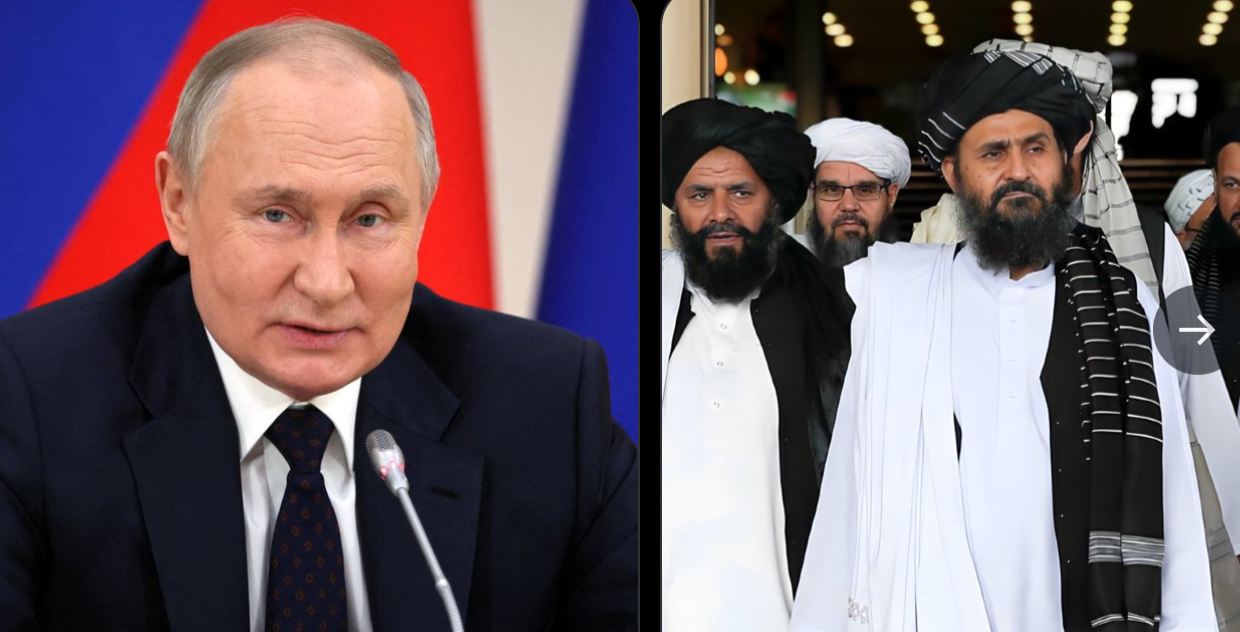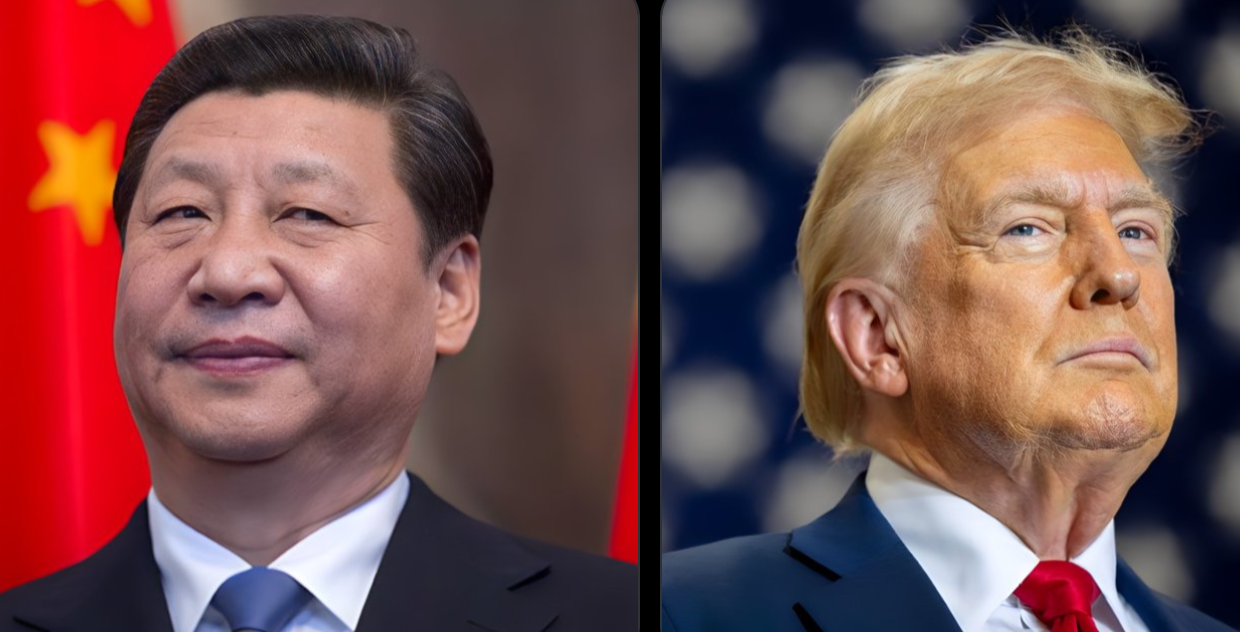President Trump says the Biden-Harris administration has sent billions of US taxpayer funds to the Taliban
President Trump Criticizes Biden-Harris Administration for Sending Billions in US Taxpayer Funds to the Taliban
In recent remarks, former President Donald Trump sharply criticized the Biden-Harris administration for allegedly sending billions of US taxpayer dollars to the Taliban. This statement has sparked considerable debate and drawn attention to the ongoing consequences of the US’s withdrawal from Afghanistan in 2021. Trump’s comments, which focus on the financial support provided to Afghanistan under the new Taliban-led government, have reignited discussions about the US’s foreign policy decisions, the impact of the chaotic withdrawal, and the broader implications for US taxpayers and international relations.
The Context of the US Withdrawal from Afghanistan
The US’s involvement in Afghanistan, which spanned nearly two decades, came to an abrupt end in August 2021 under the Biden administration. The US decision to withdraw its military forces from the country was part of a broader policy shift initiated by the Trump administration and continued by President Biden. However, the final stages of the withdrawal were marked by chaos, culminating in the rapid fall of Kabul to the Taliban and the hasty evacuation of US citizens and allies.
The US’s exit from Afghanistan has been widely criticized due to the speed and disorganization with which it occurred. The abrupt withdrawal left the Taliban in control of the country, and many have expressed concern over the potential consequences of the Taliban regaining power, including the reemergence of terrorism, human rights abuses, and the destabilization of the region.
The Controversial Issue of Financial Aid to the Taliban
Trump’s recent comments focus on the financial assistance allegedly provided by the Biden administration to Afghanistan, now controlled by the Taliban. According to Trump and his supporters, billions of dollars in US taxpayer funds were sent to Afghanistan even after the Taliban took over the government. The criticism centers on the notion that US taxpayer money is being used to support a regime that the US and much of the international community consider a terrorist organization.
In reality, much of the financial assistance to Afghanistan has been directed toward humanitarian aid and other forms of support aimed at addressing the dire conditions facing the Afghan population after the Taliban’s return to power. These funds have been used for various purposes, including providing food, medical supplies, and education services, as well as supporting initiatives to help stabilize the country in the wake of the Taliban’s control.
However, the financial support has been controversial for several reasons. Critics argue that any funds directed to the Taliban-controlled government may indirectly empower the group and allow it to further entrench its power. There have been concerns that some of this aid could be diverted for military or other purposes that might strengthen the Taliban’s position.
Trump’s Claims and Political Repercussions
In his statement, Trump condemned the Biden administration for what he described as the “irresponsible” allocation of funds to the Taliban. He accused President Biden and Vice President Harris of failing to safeguard US interests by sending taxpayer money to a regime that has been associated with human rights violations, including the suppression of women’s rights, the persecution of religious minorities, and the targeting of former Afghan government officials.
Trump’s remarks highlight a broader critique of the Biden administration’s handling of the Afghanistan withdrawal. Many of his supporters argue that the US’s actions in Afghanistan under Biden’s leadership were disastrous and that sending any financial assistance to the Taliban sends the wrong message to both the Afghan people and the world. Trump, who had initiated the deal to withdraw US forces from Afghanistan during his presidency, often contrasts the relative orderliness of the Trump administration’s planned withdrawal with the chaos that ensued under Biden’s leadership.
On the other hand, the Biden administration defends its decisions by emphasizing the need to address the humanitarian crisis in Afghanistan. With millions of Afghans facing severe food insecurity, limited access to healthcare, and widespread poverty, the US and other nations argue that some level of aid is necessary to prevent a larger humanitarian catastrophe. The Biden administration has taken steps to ensure that aid is directed toward non-governmental organizations (NGOs) and other entities working on the ground, in an attempt to avoid directly funding the Taliban.
The Biden Administration’s Response
In response to Trump’s allegations, officials from the Biden administration have clarified that while the US continues to provide humanitarian aid to Afghanistan, this assistance is carefully monitored and is intended solely to support the Afghan people, rather than the Taliban regime. The US has also imposed stringent conditions on the aid, aiming to ensure that it is not funneled directly to the Taliban.
The US has consistently stated that it is working with international partners to provide aid in ways that minimize the potential for it to benefit the Taliban government directly. Humanitarian aid, such as food, health care, and other essentials, is intended to address the dire needs of the Afghan population, which has been devastated by decades of conflict, including the Taliban’s return to power.
Despite these assurances, the issue remains politically sensitive. Critics, especially within the Republican Party, argue that the US should do more to prevent the Taliban from gaining any resources that might strengthen its control. Some have even called for a freeze on all aid to Afghanistan until the Taliban demonstrates a commitment to human rights and the protection of its citizens, particularly women and girls.
The Complexities of Aid and Diplomacy in Post-Taliban Afghanistan
The situation in Afghanistan is incredibly complex, with international diplomacy playing a delicate role in managing aid and ensuring that the country’s most vulnerable populations are supported. On the one hand, cutting off all financial assistance could exacerbate the suffering of millions of Afghans who are already living in dire conditions. On the other hand, any aid that reaches the Taliban directly could strengthen their hold on power and embolden their authoritarian policies.
International organizations, including the United Nations and various NGOs, have stepped in to provide critical support to the Afghan people. These organizations work in close cooperation with local communities, aiming to provide relief without directly benefiting the Taliban. The US and other countries have sought to strike a balance between addressing the immediate needs of the Afghan population and ensuring that any financial assistance does not enable the Taliban regime.
Impact on US Taxpayers and Global Diplomacy
Trump’s comments about US taxpayer funds being sent to the Taliban have resonated with many Americans who feel that their government should not be supporting a regime they view as dangerous and oppressive. The notion of taxpayer dollars being used in Afghanistan—particularly in the wake of the chaotic withdrawal—has become a point of contention in political discourse. As the debate continues, many Americans are asking whether the US’s role in Afghanistan should be reevaluated entirely, especially in terms of foreign aid and long-term diplomatic involvement.
The broader impact of this controversy on US foreign policy remains to be seen. As the US navigates its relationship with the Taliban-controlled Afghanistan, it will need to carefully consider its approach to aid, diplomacy, and security. The situation reflects the complex dynamics of post-conflict reconstruction, where efforts to address humanitarian needs must be weighed against concerns about political influence and the potential for aid to be misused.
In Conclusion
Trump’s recent criticism of the Biden-Harris administration for sending billions in US taxpayer funds to the Taliban highlights the ongoing political and ethical debates surrounding the US’s withdrawal from Afghanistan and its subsequent policies toward the Taliban. While the Biden administration justifies its humanitarian aid efforts, the complexity of managing assistance in a Taliban-controlled Afghanistan continues to spark contentious debate. As the US continues to grapple with the aftermath of its withdrawal, the debate over financial aid to Afghanistan will likely remain a focal point in discussions about American foreign policy and the ethical considerations of global aid.

















Post Comment